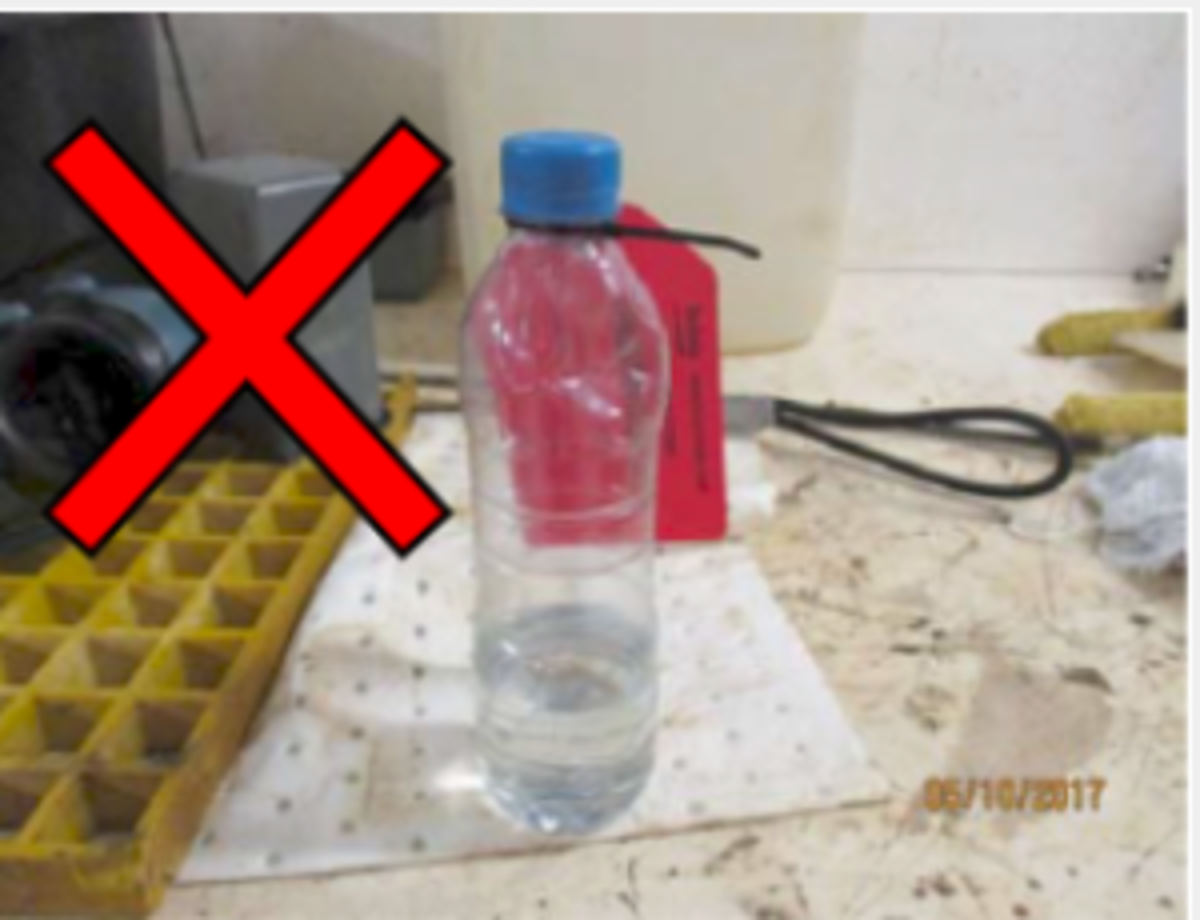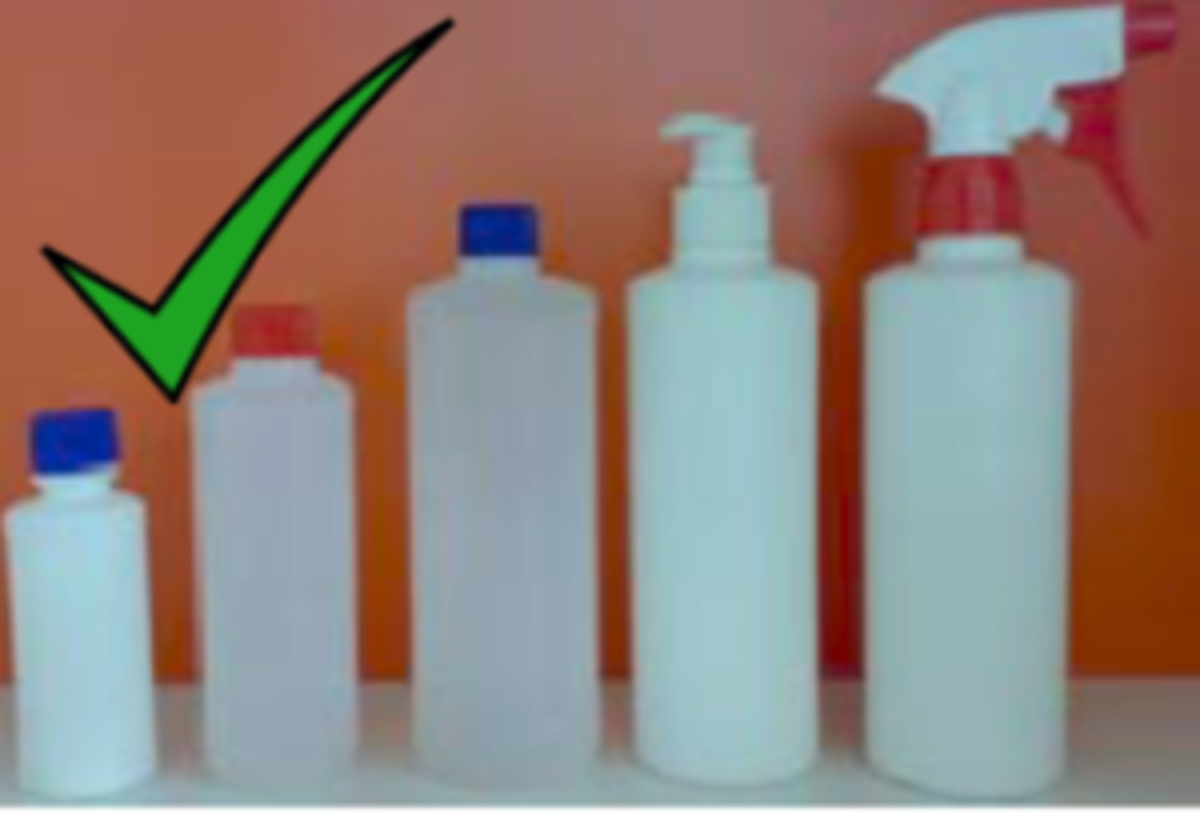Accidental drinking of thinners stored in mineral water bottle
- Safety Flash
- Published on 14 June 2018
- Generated on 12 July 2025
- IMCA SF 12/18
- 2 minute read
Jump to:
A trainee ETO took a sip from a mineral water bottle in the engine room workshop.
What happened?
It contained thinners rather than water. The bottle was kept in the engine room workshop by third-party contractors. After taking a swallow, he realized that it was thinners & immediately spat out most of the contents.
He immediately drank salt water to induce vomiting in order to get any remaining thinner solution out of his system. The advice from the company doctor was that he consume plenty of fluids, eat light food and rest for a few days.
What went wrong? What were the causes?
- Initial investigation revealed that the third-party contractors working onboard had temporarily stored thinner in the mineral water bottle.
- The third-party contractors were inadequately briefed and behaved in an unsafe way – unsafe practice was used by the third-party contractors.
What actions were taken? What lessons learned were learned?
Crew and third-party contractors were reminded to only store chemicals in proper, appropriately marked containers. Crew were recommended to refrain from drinking water from shared bottles in common places, and to carry their own bottle.
IMCA notes that this was an entirely avoidable incident, but unfortunately a repeated scenario that other IMCA members have had to deal with in recent times. Members may wish to make a particular ‘safety moment’ of this incident and others of its type to prevent recurrence.
Related Safety Flashes
-
IMCA SF 29/17
15 November 2017
-
-
IMCA SF 29/17
15 November 2017
-
IMCA Safety Flashes summarise key safety matters and incidents, allowing lessons to be more easily learnt for the benefit of the entire offshore industry.
The effectiveness of the IMCA Safety Flash system depends on the industry sharing information and so avoiding repeat incidents. Incidents are classified according to IOGP's Life Saving Rules.
All information is anonymised or sanitised, as appropriate, and warnings for graphic content included where possible.
IMCA makes every effort to ensure both the accuracy and reliability of the information shared, but is not be liable for any guidance and/or recommendation and/or statement herein contained.
The information contained in this document does not fulfil or replace any individual's or Member's legal, regulatory or other duties or obligations in respect of their operations. Individuals and Members remain solely responsible for the safe, lawful and proper conduct of their operations.
Share your safety incidents with IMCA online. Sign-up to receive Safety Flashes straight to your email.

